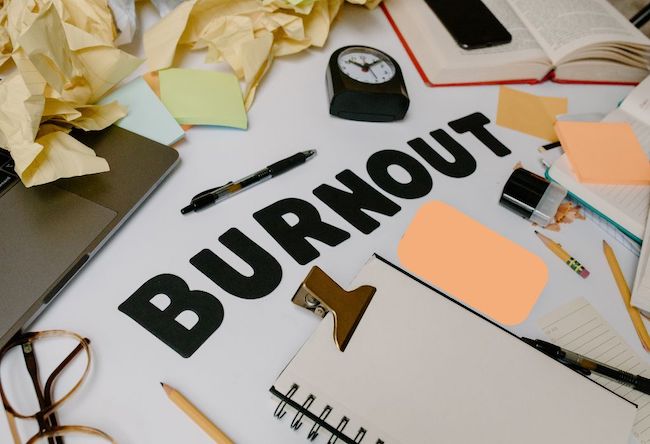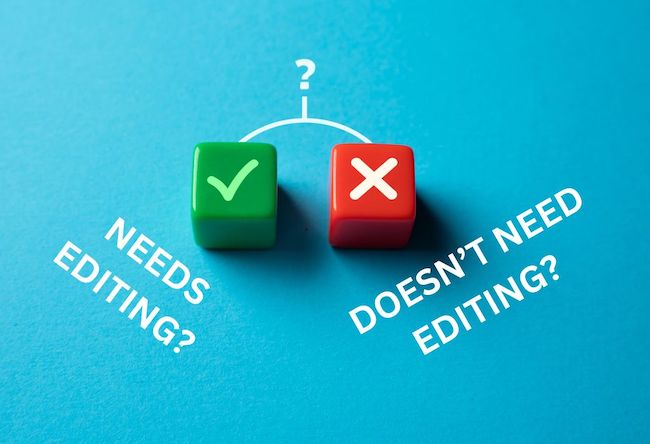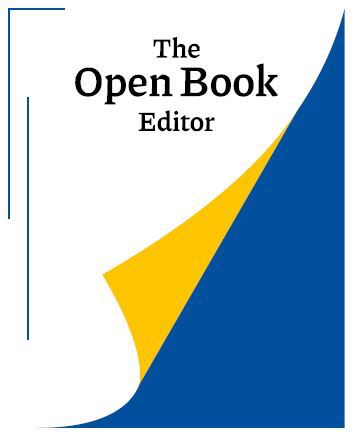A common saying in the writing community is that publishing is a marathon, not a sprint. You need a lot of stamina to get through the months and years it takes to write, edit, and query a book. And burnout—whether via query burnout or overall writing burnout—is a harsh reality for many writers.
The signs may not always be obvious, but it’s important to know when you’re experiencing query burnout and need to take a break (or change your querying approach). While querying is tough, you shouldn’t have to battle anxiety and exhaustion every step of the way, either. Even if you find it impossible to stay zen throughout the process (which author can?!), reading up on the four most common signs will not only help you to recognise query fatigue, but find practical ways to beat your burnout.
4 Signs of query burnout

1. You take each rejection personally
There’s no set number of rejections to expect before you decide either to stop querying your manuscript or go another publishing route. J.K. Rowling’s 12 rejections are often held up as an example of how tough the publishing industry can be. But the industry has gotten more competitive since then, and these days, 12 is considered an incredibly low number. Most authors will receive dozens of rejections before signing with an agent.
But don’t let this discourage you! Rejection (and a lot of it) is part and parcel of the industry. While how many rejections you get depends on how many agents you pitch, it’s not uncommon for most writers to see between 30-70 before landing an agent.
Although it’s easy to tell writers to have a thicker skin, a lot of rejections (or radio silence) can wear away at you and lead to query burnout. Especially because, a lot of times, you don’t know why you’re being rejected. It’s not always a reflection on you or your work but rather what’s more marketable and what agents think will do well in the upcoming months and years. And that can be harder for writers to predict.
So, are you able to brush off rejection and accept it isn’t personal? Or does each rejection send you into an obsessive spiral? If it’s the latter, you may be experiencing query burnout.

2. You can’t stop editing your book
Endlessly tweaking your book while querying agents is a surefire way to burn yourself out. If you’re struggling to leave your manuscript alone, ask yourself whether more editing is actually helping your book. In the case that it’s not making it better or you’re not sure, force yourself to stop. If you do get agent interest, they may not be pleased to discover you’ve changed the book from the version you queried with.
But if you’re editing because of valid issues with your book—plot holes, unrealistic characters, or poor world-building—then you most likely weren’t ready to query to begin with. It’s hard not to get excited about querying your book. After all, this is the first step in the journey to getting traditionally published! But this can sometimes lead to submitting it too early.
Querying is incredibly competitive—you’re contending with hundreds, if not thousands, for an agent’s attention. It’s vital your manuscript is as good as you can make it before you send it out. And if you start querying too soon, you run a higher risk of query burnout. If you notice issues with your manuscript after you’ve started querying, don’t panic. Simply take a step back to work more on your book.
But what should you do when you’re not sure what edits you need? Perhaps an agent said it needs work but they weren’t specific on the details, or you have a feeling something is ‘off’ but can’t pinpoint what. If that’s the case, you need to get outside feedback. While beta readers are great, a professional editor can be invaluable at this stage. And hiring an editor is a worthwhile investment. They’ll help you grow stronger as a writer, develop a greater appreciation for the craft, and learn how to spot issues more quickly—skills that will be useful throughout your entire writing career.

3. You’re overwhelmed with self-doubt
Querying can be tough on your self-esteem and it’s normal to experience some trepidation throughout the process. But, if you find yourself frequently overwhelmed by self-doubt, you could be going through query burnout.
To survive the query trenches, you need to believe in yourself and your book. As long as you’ve gone through all the right steps to make it as good as it can be, and you’ve spent time polishing your query letter, synopsis, and the rest of your pitch package, then you can feel confident that your book is ready to be seen by agents.
However, if you’re questioning yourself every step of the way, doubting your skills as a writer, or beating yourself up over simple mistakes (like a typo in an email), then you have a case of query burnout and might need a break.

4. You’ve lost enthusiasm for your book
A sure sign you’re suffering from query burnout is when you’re no longer excited about your book or, worse, starting to resent it. Writing and finishing a first draft is hard, not to mention all the rounds of self-editing you need to go through before it’s query-ready.
Passion for your story will help you maintain the stamina needed for the long-haul publishing process. But sometimes, you can start out incredibly passionate about your book, only to lose that enthusiasm to the daily grind of queries and rejections.
If the idea of working on your book or submitting it to agents or competitions is no longer exciting to you, set it aside for the time being. This doesn’t mean it’s the end of the road for your book. Remember, you can always come back to it at a later point, when that energy and excitement return!
How to survive the query trenches (and beat query burnout)
We’ve shown you the four main signs of query burnout, so let’s dive into how you can beat them, too!
- Write something else. Maybe the book you’re currently querying isn’t ‘the one’. Many writers pen multiple manuscripts before writing the one that lands them an agent or publishing deal. It’s normal! Don’t wait around for your novel to succeed; start working on the next one.
- Disable email notifications on your phone. It’s hard not to obsessively check your emails while querying. However, this can lead to query burnout, so it’s important to put a few barriers in place to help you manage your mental health. Disabling email notifications or removing the email app from your phone entirely is a great step you can take. Try to limit yourself to checking for query responses once a day—and choose a time of day where you’re feeling most able to cope with potential bad news or rejections.
- Talk to your writing group (or seek support from the online writing community). It helps to know that you’re not alone and that querying is a challenge for everyone!
- Make sure you feel ready to query again. Don’t start querying again until you’re sure you’ve fully recovered from burnout. A good gauge is to ask yourself if you’re feeling passionate about your book again. If not, maybe you need a little more time away.
- Celebrate the small wins! This includes personalised rejections. If an agent has taken the time to personalise their rejection, it means they see potential in your work. But celebrate other little milestones, too, whether it’s a partial request, a rejection but an open interest in anything you write in the future, or an R&R (revise and resubmit).

Most importantly: It’s okay to take a break!
It’s not easy to step back, but your mental health will thank you in the long run. If you’re experiencing any of these signs of query burnout, then just stop. Allow yourself time to rest and recover and come back when you’re feeling more optimistic and energised. Those agents will still be there when you return from your break!
Talking to a professional like an author coach can help, too. A great author coach can walk you through the ups and downs of querying, provide guidance on how to approach agents, and even help you pinpoint which areas you need to work on as a writer. Most important of all, an author coach can offer a listening ear and bolster you when you’re going through a tough time in the querying trenches. And by surrounding yourself with supportive people—whether it’s other writers or a professional coach—you’ll be able to approach querying in a healthier way and better cope with query burnout.


